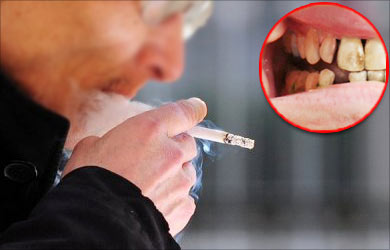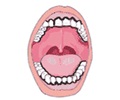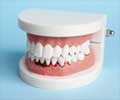Risk Factors of Periodontitis
Improper oral hygiene, gingivitis, smoking and genetic susceptibility are major risk factors for chronic periodontitis.
Risk factors for periodontitis include:
- Poor Oral Hygiene: Improper or no brushing and poor oral hygiene are the key factors for the accumulation of plaque and formation of tartar, and thereby gingivitis.
- Gingivitis: Gingivitis is the leading cause for most of the cases of periodontitis.
- Smoking and tobacco use: Smoking is amongst the most important risk factors linked to the progression of chronic gum disease. Also, smoking can interfere with the treatment and lowers the chances of treatment success.

- Hormonal changes in women: Hormonal changes in pregnancy or menopause can make gums more sensitive, thereby making it easier for gingivitis to develop.
- Diabetes: Infections, including gingivitis, can quickly develop in people with diabetes.
- Other illnesses and weakened immunity: Immunosuppressants prescribed in organ transplantation and the treatment of other chronic diseases like cancer or AIDS that have an impact on immunity, can also affect the gums negatively.
- Medications: Several prescription and over-the-counter medications can reduce the secretion of saliva. This can increase the susceptibility to oral infections including gingivitis and other gum diseases. Moreover, certain steroid-based medications can cause overgrowth of the gum tissue making it difficult to maintain proper hygiene of the gums.

- Genetic susceptibility / Hereditary factors: People with certain genotypes are more vulnerable to severe gum disease than others.
- Ill-fitting dental implants: An ill-fitting dental implant can create cavities in gums for germ build-up and make it more prone to progressive gum diseases.


















